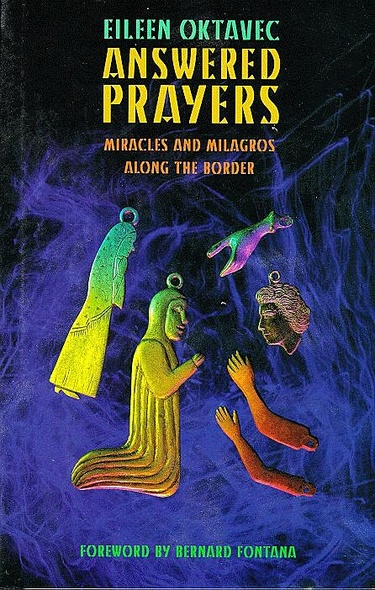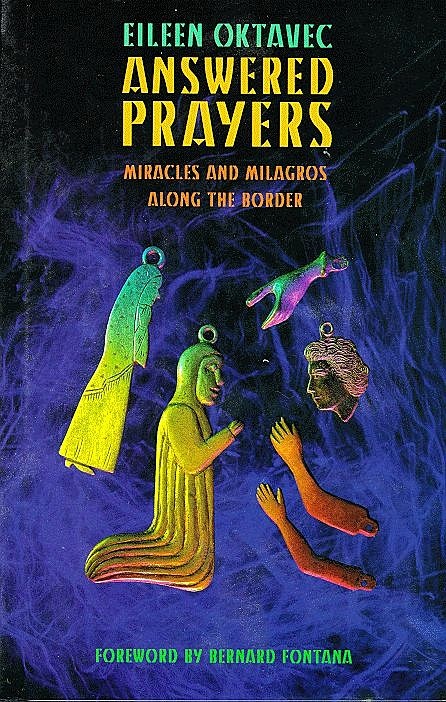Our shopping cart is currently down. To place an order, please contact our distributor, UTP Distribution, directly at utpbooks@utpress.utoronto.ca.
When Catholics in the Southwest ask God or a saint for help, many of them do not merely pray. They also promise or present a gifta tiny metal object known as a milagro. A milagro, which means "miracle" in Spanish, depicts the object for which a miracle is sought, such as a crippled leg or a new house. Milagros are offered for everything people pray for, and so they can represent almost anything imaginablearms, lungs, hearts, and eyes; men, women, and children; animals, cars, boatseven lost handbags and imprisoned men. In Answered Prayers, the Mexicans, Mexican Americans, Tohono O'odham, and Yaquis who practice this tradition share their stories of unwavering faith and divine intervention.
Anthropologist and photographer Eileen Oktavec has spent more than two decades documenting this fascinating tradition in the Arizona-Mexico borderlands. Quoting extensive interviews, she explains the beliefs of the people who perform this ancient folk ritual and the many rules guiding this practice. She also describes the many places where milagros are offeredfrom the elaborate Mexican baroque Mission San Xavier near Tucson, Arizona, to tiny household shrines and hospitals on both sides of the border. Oktavec also explains how milagros are made, where they are bought, and how they are used in jewelry, sculpture, and art.





